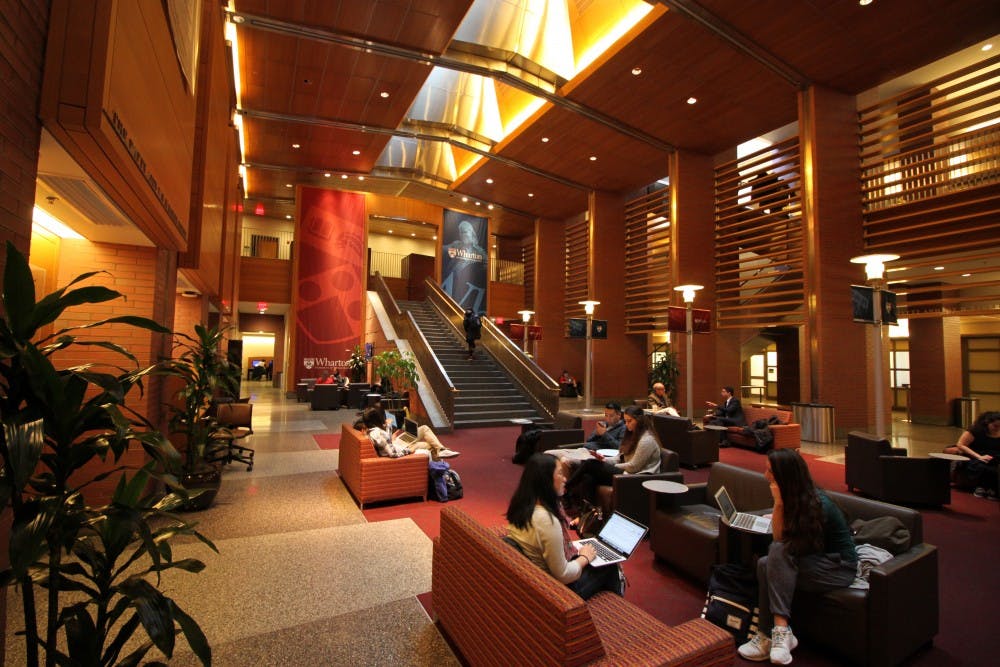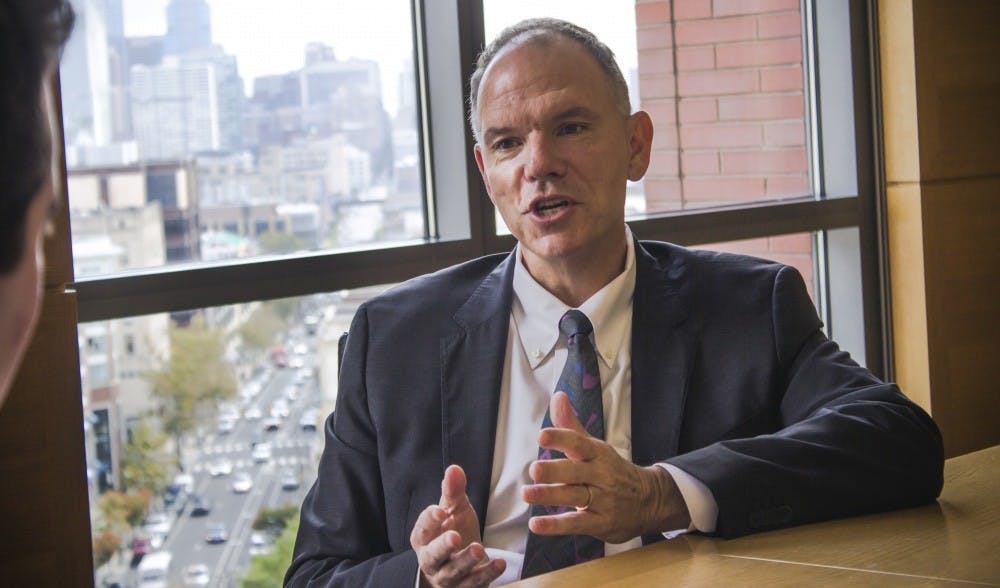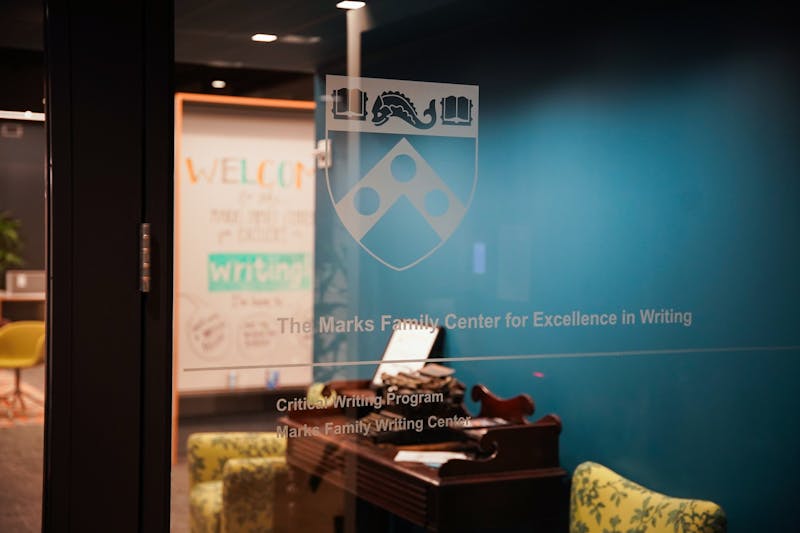
The news that Huntsman Hall will no longer be open 24 hours has struck a nerve with returning Penn students.
Many have expressed concern over whether the change in operating hours will meaningfully improve mental health, posting comments and memes online that argue Penn is trying to eradicate the symptoms of an unhealthy working environment on campus without addressing its source.
A petition started on Change.org calling on Wharton to revert the decision had gathered more than 30 signatures by 7:20 p.m. Thursday.
Wharton Dean Geoffrey Garrett announced Thursday that starting on Sunday, Huntsman Hall will close at 2 a.m. and reopen at 7 a.m. While the building will be closed for the early hours of the morning, there will still be security staff on shift. According to administrators, the decision to close Huntsman Hall early will not create significant cost savings for the University.
Other initiatives that Wharton is taking to improve student wellness include hiring a new associate director to help undergraduate students "experiencing acute academic and personal challenges" and designating a Mindfulness Space in Huntsman Hall.
Wharton junior Rahul Subbaraya said the building is a central meeting place to work on projects or study for exams, adding that he has often stayed there until 4 or 5 a.m.
"I think it’s dodging the issue," Subbaraya said. "The issue is not that we’re staying in Huntsman. We’re still going to have the same amount of work to do whether we’re studying in Huntsman or not. So it’s going to be more stressful to find a quiet place to study."
Wharton junior Varun Vallabhaneni agreed, adding that Huntsman's 57 group study rooms often provide a suitable location to work with friends late into the night.
Many other students expressed similar concerns that it will be difficult to find study areas that are suitable for group work.
"I’m not sure how it’s an effective way to improve wellness," Wharton and Engineering junior Roshan Benefo said. "Huntsman is a valuable study space that I need to have, and I don’t think this [new policy] is going to make me study less or anything but just make me study in different places."
Have thoughts on Wharton's efforts towards improving wellness? Share them with us at letters@thedp.com or newstip@thedp.com.
Penn Benjamins co-director and College senior Gabby Rothschild said she thinks closing the building will just prompt students to relocate.
"The only way to address students working up to 2 a.m. is to address where that work is coming from, maybe by adjusting the workload for students or encouraging students to get some sleep and to put personal wellness in front of work," she said.
Rothschild said she appreciates the University's effort to address wellness and sees this as "a positive sign that that the other necessary steps may come along," but added that she does not see this particular step as an effective one.

But not everyone thinks the decision is a bad one.
2017 College graduate Nick McGreivy is a current second-year Ph.D. student at Princeton University, and said he has noticed that buildings at Penn tend to operate later than at Princeton.
"A lot of buildings are open 24 hours at Penn versus with Princeton things are closed," McGreivy said. "I think that's done on purpose with the intent of making sure that students actually go to bed."
Nonetheless, McGreivy said he believes it is primarily the culture of overachievement at Penn that leads to poor health and wellness among students.
"This culture of doing too much as a student is so ingrained in the University that making all the buildings close at once would mean you have a whole bunch of students who still believe you need to be taking six classes in order to be successful," he said.
News Editors Haley Suh, Michel Liu, and Deputy News Editor Amy Liu contributed reporting.
The Daily Pennsylvanian is an independent, student-run newspaper. Please consider making a donation to support the coverage that shapes the University. Your generosity ensures a future of strong journalism at Penn.
Donate







